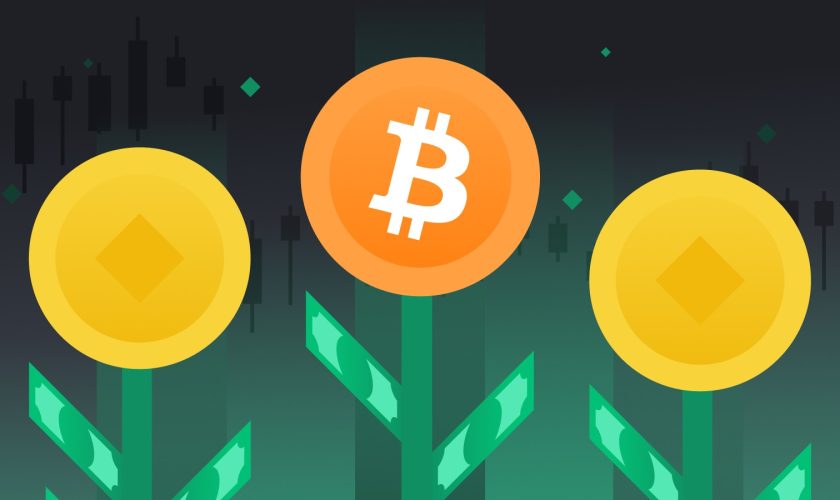Introduction: The Dawn of a Monetary Evolution
In the vast and intricate world of finance, few innovations have stirred as much excitement, skepticism, and philosophical debate as Bitcoin. Born in the aftermath of the 2008 global financial crisis, Bitcoin emerged not merely as a new form of currency but as a radically different vision of how money could work in the digital age. It introduced a system free from centralized control, resistant to inflation, and accessible across borders—features that have drawn both acclaim and scrutiny. As we delve into the intricacies of Bitcoin, its technology, and its implications, we begin to appreciate not just its monetary value, but its broader impact on the global economic landscape.
Understanding Bitcoin: More Than Just Digital Cash
At its core, Bitcoin is a decentralized digital currency, meaning it operates without a central authority such as a government or bank. Transactions are verified by network nodes through cryptography and recorded on a public ledger known as the blockchain. This architecture ensures transparency, immutability, and trust—qualities that have propelled Bitcoin into mainstream financial discussions.
Unlike traditional fiat currencies, Bitcoin is limited in supply. Only 21 million bitcoins will ever exist. This scarcity, akin to that of precious metals like gold, has earned Bitcoin the moniker “digital gold.” But while gold is tangible and centuries-old, Bitcoin is intangible and built upon groundbreaking technology. This blend of scarcity and innovation sets it apart from any previous form of money.
The Blockchain: The Backbone of Trust
The blockchain, Bitcoin’s underlying technology, is a decentralized ledger that records every transaction across a network of computers. Each block contains a list of transactions and is cryptographically linked to the previous one, forming a secure and chronological chain.
Why is this significant?
-
Transparency: Every transaction is publicly visible, fostering accountability
-
Security: Cryptographic techniques and decentralized consensus make tampering virtually impossible
-
Efficiency: It eliminates the need for intermediaries, reducing transaction times and fees
These features make blockchain not only essential to Bitcoin but also a potential game-changer in fields ranging from supply chain management to voting systems.
Why Bitcoin Matters: Philosophical and Practical Implications
Bitcoin is not just a technological marvel—it is a philosophical statement. At a time when trust in traditional financial institutions was waning, Bitcoin offered an alternative. It represents a shift toward monetary sovereignty, where individuals, not central banks, hold the reins.
Several key themes underscore its importance:
-
Decentralization: Power is spread across a network, rather than concentrated in a single authority
-
Deflationary Design: With a capped supply, Bitcoin resists inflationary pressures inherent in fiat currencies
-
Borderless Utility: Bitcoin can be sent anywhere in the world without the need for traditional banks or payment systems
For individuals in countries experiencing hyperinflation or restrictive banking regulations, Bitcoin can serve as a financial lifeline. For others, it’s a hedge against economic uncertainty and a store of value beyond government control.
The Investment Narrative: Speculation or Store of Value?
Since its inception, Bitcoin’s price journey has been nothing short of dramatic. From being virtually worthless in its early days to reaching all-time highs in the tens of thousands of dollars, it has captivated investors, institutions, and the media alike. But this volatility also invites criticism and caution.
Some see Bitcoin purely as a speculative asset, a bubble waiting to burst. Others regard it as a long-term store of value, akin to gold, but with superior portability and divisibility.
Prominent investors and corporations have begun allocating a portion of their portfolios to Bitcoin, citing it as a hedge against inflation and currency devaluation. Its emergence on institutional balance sheets and the development of Bitcoin-based ETFs suggest a growing maturation of the asset class.
Challenges and Criticisms: A Balanced View
Despite its promise, Bitcoin is not without flaws. Critics point to several concerns:
-
Energy Consumption: Bitcoin’s proof-of-work consensus mechanism requires significant electricity, prompting environmental concerns
-
Regulatory Uncertainty: Governments around the world are still grappling with how to regulate or integrate Bitcoin within existing financial frameworks
-
Scalability: Bitcoin’s network can process only a limited number of transactions per second, leading to delays and high fees during periods of congestion
Efforts are underway to address these issues. Layer 2 solutions like the Lightning Network aim to enhance scalability, while discussions about transitioning to greener consensus models continue to evolve. Regulatory clarity, while still developing, may eventually help legitimize Bitcoin further in global markets.
Bitcoin and the Future of Money
As central banks experiment with digital currencies and fintech innovations reshape how we interact with money, Bitcoin occupies a unique space in the financial ecosystem. It’s not a replacement for all monetary systems, but a parallel one—offering choice, autonomy, and a different set of trade-offs.
Looking ahead, several scenarios could unfold:
-
Mainstream Adoption: With improved user interfaces, education, and regulatory acceptance, Bitcoin could become a widely-used medium of exchange
-
Digital Gold Thesis: It may solidify its role primarily as a store of value and an institutional asset class
-
Technological Integration: Bitcoin could serve as a foundational layer upon which new decentralized financial products and services are built
Whether it becomes a universal currency or remains a niche reserve asset, Bitcoin has already altered the trajectory of modern finance.
Conclusion: A New Chapter in Economic Thinking
Bitcoin is more than a currency; it is a transformative idea. It challenges our assumptions about money, trust, and value in a digital world. While its future remains unwritten, its impact is undeniable. By combining advanced cryptography with economic foresight and a touch of rebellion, Bitcoin has sparked a global conversation about what money could—and perhaps should—be in the 21st century.
As with all revolutionary technologies, it demands both caution and curiosity. Whether embraced as an investment, a tool for freedom, or a technological marvel, Bitcoin is here to stay, quietly shaping the contours of our financial future.






